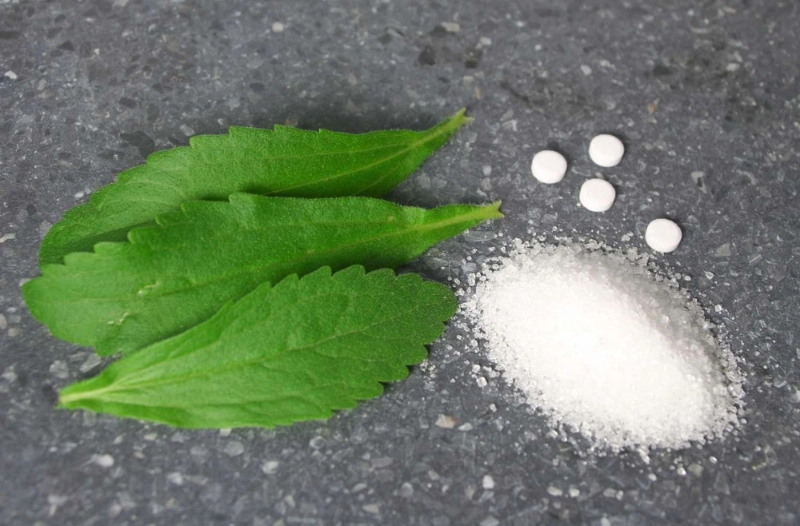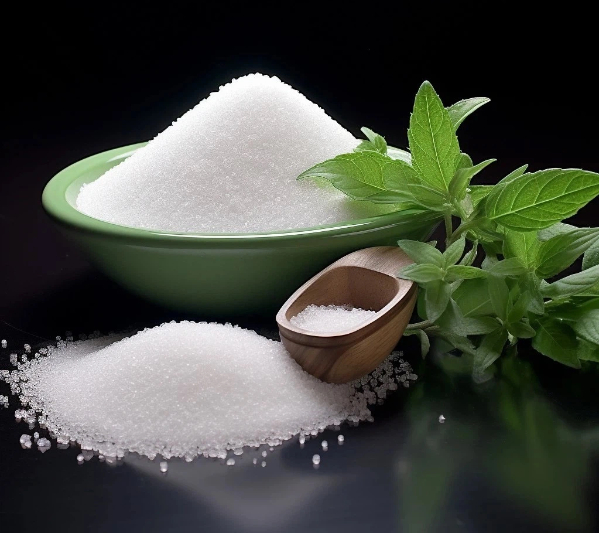Views: 222 Author: Sara Publish Time: 2025-10-14 Origin: Site








Content Menu
● Is Too Much Stevia Bad for You? Safety and Side Effects
● Interactions and Considerations
● Is Stevia Right for Everyone?
● Frequently Asked Questions (FAQ)
>> 1. What is the acceptable daily intake of stevia?
>> 2. Can stevia cause allergic reactions?
>> 3. Does stevia affect blood pressure?
>> 4. Is stevia safe for pregnant or breastfeeding women?
>> 5. How does stevia compare with sugar and artificial sweeteners?
Stevia, derived from the Stevia rebaudiana plant native to South America, has gained widespread popularity as a natural, zero-calorie sweetener alternative to sugar. It is approximately 50 to 400 times sweeter than regular sugar, yet it contributes no calories because the human body does not metabolize its primary sweetening compounds called steviol glycosides. Traditionally used by indigenous peoples in Paraguay and Brazil to sweeten foods and beverages, stevia has become a favored sugar substitute for those seeking healthier dietary options, including people managing diabetes, weight, and caloric intake.

Stevia is a plant-based sweetener extracted from the leaves of the Stevia rebaudiana plant. The key compounds responsible for its sweetness are steviol glycosides, primarily stevioside and rebaudioside A. Unlike sugar, these compounds pass through the digestive system largely unmetabolized, so they do not contribute calories or raise blood glucose levels. Available in various forms, including powdered extract, liquid drops, and tablets, stevia is used in everything from beverages to baked goods as a natural sugar alternative. Its heat stability also allows it to retain sweetness during cooking processes.
Stevia's sweetness profile differs from sugar in that it has a slower onset, a longer-lasting finish, and can sometimes carry a slight licorice-like or bitter aftertaste at high concentrations. Despite this, most consumers describe stevia as an excellent natural option for reducing sugar intake.
Stevia's primary benefits stem from its ability to provide sweetness without adding calories or affecting blood sugar. This makes it attractive for:
- Weight management: Replacing sugar with stevia can reduce overall calorie consumption, supporting weight loss or maintenance.
- Diabetes control: Since stevia does not raise blood glucose, it is a preferred sweetener for people with diabetes.
- Dental health: Stevia does not contribute to tooth decay or cavities as sugar does.
- Plant-derived: Many consumers prefer stevia over artificial sweeteners for its natural origins.
Studies have also explored stevia's potential antioxidant, anti-inflammatory, and blood pressure-lowering effects, though more research is needed to confirm clinical benefits beyond sweetening.
Despite the growing popularity of stevia, concerns inevitably arise around how much is too much and whether excessive intake might cause adverse effects. Regulatory agencies including the US Food and Drug Administration (FDA) have approved purified steviol glycosides as generally recognized as safe (GRAS) within established daily intake limits.
The Acceptable Daily Intake (ADI) for steviol glycosides, set by the FDA and the Joint FAO/WHO Expert Committee on Food Additives (JECFA), is approximately 4 mg per kilogram of body weight. For an average adult, this translates to about 240 mg per day, which is equivalent to roughly 10-15 mg of stevia extract per kilogram of food or beverage consumed. Exceeding this limit regularly could potentially lead to unwanted side effects.
Commonly reported side effects from overconsumption or sensitivity to stevia include:
- Gastrointestinal issues: bloating, nausea, stomach cramps, or diarrhea
- Allergic reactions: rare but possible, especially in people allergic to plants in the Asteraceae family which includes ragweed, daisies, and marigolds
- Low blood pressure (hypotension): stevia may lower blood pressure, which could be problematic for individuals with naturally low blood pressure or on blood pressure medication
More severe adverse effects are uncommon and usually associated with the consumption of unrefined stevia products, which contain high concentrations of other plant compounds. Commercially purified stevia extracts are generally free from such risks when consumed within levels deemed safe.

Stevia may interact with certain medications, including those for managing blood sugar and blood pressure, so it is advised to consult healthcare providers if stevia is used regularly in significant amounts. Pregnant or breastfeeding women should also consult doctors before using stevia supplements, although moderate amounts in foods are considered safe.
Compared with artificial sweeteners like aspartame, saccharin, and sucralose, stevia offers a natural origin and fewer controversies regarding long-term use. Sugar alcohols such as erythritol and xylitol provide some calories and can cause digestive discomfort when consumed excessively, while stevia is calorie-free and typically gentler on the digestive system.
While stevia is a safe and healthy option for most people when consumed appropriately, individual tolerance varies. Some may experience mild digestive upset or dislike the aftertaste. It can be a valuable tool in reducing sugar consumption and managing blood sugar but should be part of a balanced, varied diet.
Stevia is a natural, zero-calorie sweetener with multiple benefits for weight control, diabetes management, and dental health. When consumed within the established acceptable daily intake, stevia is safe for most individuals without significant side effects. Excessive consumption could lead to gastrointestinal discomfort, allergic reactions, or blood pressure changes in sensitive people. Choosing purified stevia extracts and mindful consumption is key to enjoying its advantages safely. As with any food ingredient or supplement, consultation with healthcare providers is recommended especially for people with chronic conditions or pregnancy.

The acceptable daily intake (ADI) of stevia steviol glycosides is about 4 mg per kilogram of body weight, according to FDA and WHO guidelines. This generally equates to roughly 240 mg/day for an average adult.
While rare, allergic reactions to stevia can occur, especially in individuals allergic to plants in the Asteraceae family. Symptoms may include rash, itching, or swelling.
Stevia has been shown to potentially lower blood pressure. People with low blood pressure or on antihypertensive medication should monitor intake and consult a doctor.
Moderate consumption of stevia as a sweetener in foods is considered safe, but large doses or supplements should be avoided unless approved by a healthcare provider.
Stevia provides sweetness without calories or blood sugar spikes, unlike sugar. It is natural, unlike many artificial sweeteners, and generally considered safer and better tolerated than sugar alcohols.
